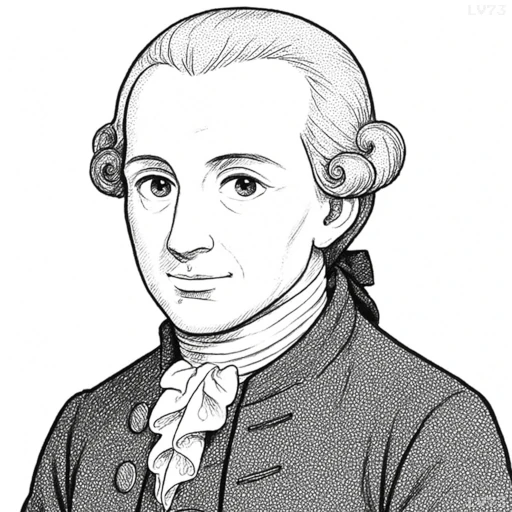“It is beyond a doubt that all our knowledge begins with experience.”

- April 22, 1724 – February 12, 1804
- Born in Germany (East Prussia)
- Philosopher
table of contents
Quote
“It is beyond a doubt that all our knowledge begins with experience.”
Explanation
In this quote, Immanuel Kant asserts that experience is the starting point for all human knowledge. This reflects Kant’s position in the epistemological debate of his time, particularly his response to empiricism and rationalism. Kant acknowledges that sensory experience is essential in forming knowledge, as we first encounter the world through our senses. However, he also argues that experience alone is insufficient for full knowledge, as it requires the application of concepts and categories—such as space, time, and causality—through which we interpret and understand the world. This idea is central to his transcendental idealism, where he suggests that while our knowledge begins with experience, it is shaped and structured by our innate cognitive faculties.
In the modern context, this quote remains relevant in understanding how we acquire knowledge. For instance, in scientific research, knowledge is always grounded in empirical data—that is, experience gained through observation and experimentation. Yet, just as Kant proposed, these observations are interpreted through theoretical frameworks and conceptual tools, which provide the meaning and structure to the raw data. This perspective can also be applied in education and psychology, where human learning is understood to involve both sensory input (experience) and mental processing (conceptualization), illustrating the dynamic interplay between the external world and the internal mind.
Historically, this quote highlights Kant’s departure from both empiricists, who believed that all knowledge comes solely from experience (e.g., Locke, Hume), and rationalists, who held that knowledge is derived from reason alone (e.g., Descartes, Leibniz). Kant’s critical philosophy sought to bridge this divide, arguing that while experience is necessary for knowledge, it is not sufficient on its own. His assertion that knowledge begins with experience but requires the mind’s active participation laid the groundwork for modern cognitive science and constructivist learning theories. Today, his philosophy continues to influence discussions on epistemology, psychology, and even artificial intelligence, where the interaction between experience and cognitive processing is central to understanding how we come to know and interpret the world.
Would you like to share your impressions or related stories about this quote in the comments section?


